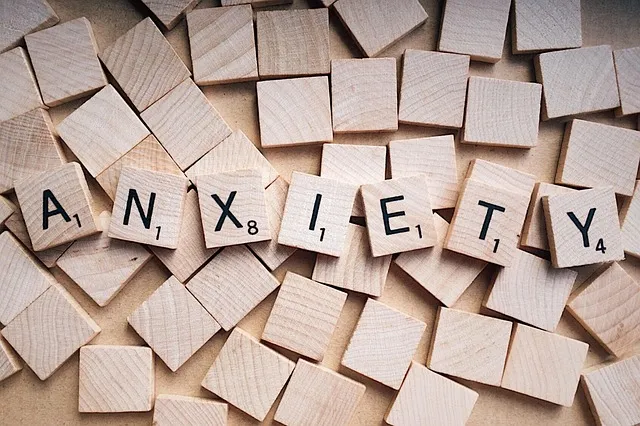Emotion regulation is a key factor in enhancing mental well-being, as it empowers individuals to manage their emotions effectively and build resilience against stress. Research by Kaiser and Westminster emphasizes the importance of learning emotion regulation techniques for emotional healing, especially within diverse cultural contexts. Teaching these skills in educational settings can lead to improved relationships, better decision-making, and higher life satisfaction. The Westminster How to Get Mental Health Help resources promote strategies like deep breathing, cognitive restructuring, and problem-solving, often combined with professional support from Kaiser, to mitigate anxiety and depression. Through partnerships, Westminster offers a comprehensive network of tailored mental health resources, ensuring accessible care for various needs.
Emotion regulation techniques are essential tools for maintaining mental well-being. This article explores the significance of teaching as a means of supporting mental health, focusing on various effective strategies. We delve into understanding emotion regulation and its impact, highlighting the role of education in empowering individuals. From recognizing triggers to employing coping mechanisms, these techniques offer practical solutions. Additionally, we guide readers on accessing mental health resources, including options available at Westminster and Kaiser, ensuring support is readily available for those seeking help.
- Understanding Emotion Regulation and Its Importance
- The Role of Teaching in Mental Health Support
- Effective Techniques for Managing Emotions
- Accessing Help: Westminster, Kaiser, and Beyond
Understanding Emotion Regulation and Its Importance

Understanding emotion regulation is a fundamental step towards improving mental well-being. It involves recognizing and managing one’s emotions effectively, ensuring they don’t overwhelm or control our thoughts and actions. This process is crucial for maintaining good mental health, as it helps individuals navigate challenging situations with resilience and adaptability. Kaiser and Westminster, in their research, emphasize the significance of learning these techniques to foster emotional healing processes, especially when seeking mental health help.
Emotion regulation isn’t just about suppressing feelings; it’s a skill that encourages us to respond thoughtfully and adaptively to our emotions. This is particularly important in today’s fast-paced world, where stress and anxiety are prevalent. The Cultural Sensitivity in Mental Healthcare Practice approach suggests that understanding cultural contexts can enhance compassion cultivation practices, making emotion regulation techniques even more effective and accessible to diverse populations. By learning these skills, individuals can better navigate their emotional landscapes, leading to improved relationships, enhanced decision-making, and overall life satisfaction.
The Role of Teaching in Mental Health Support

Teaching plays a pivotal role in mental health support, especially in promoting coping skills development and enhancing overall mental wellness. By incorporating effective emotion regulation techniques into educational frameworks, both formal and informal settings can empower individuals to navigate their emotions more healthily. This is particularly crucial in today’s fast-paced world, where stress and burnout prevention strategies for healthcare providers are essential considerations.
At institutions like Kaiser or even within community programs inspired by the resources of Westminster, teaching mental health literacy equips people with the tools to recognize and manage their emotional states. These techniques can be life-changing, enabling individuals to cope more effectively with challenges and stressful situations. Through education, people gain a deeper understanding of their mental health needs, fostering self-care practices that can prevent or mitigate symptoms of anxiety and depression, thereby reducing the risk of more severe issues.
Effective Techniques for Managing Emotions

Emotion regulation techniques are essential tools for maintaining mental well-being, and there are several effective strategies to manage emotions healthily. One popular approach is self-care practices, which involve setting aside time for activities that nurture your mind and body. Engaging in regular mindfulness meditation can significantly enhance this process; it allows individuals to become more aware of their emotions and triggers, fostering better control.
The Westminster How to Get Mental Health Help resources emphasize coping skills development as a vital aspect of emotional well-being. By learning techniques such as deep breathing exercises, cognitive restructuring, and problem-solving strategies, individuals can effectively navigate stressful situations and regulate their emotions. These skills, coupled with professional support from Kaiser or similar mental health services, can empower people to lead more balanced and fulfilling lives.
Accessing Help: Westminster, Kaiser, and Beyond

When it comes to accessing help for mental health concerns, Westminster offers a range of resources tailored to individual needs. For those seeking guidance and support, reaching out to professionals at Kaiser can be a significant step towards managing and overcoming challenges. The process is designed to be inclusive, ensuring that everyone, regardless of their background, has access to care.
Whether one is dealing with anxiety relief, coping skills development, or even social skills training, Westminster’s network provides specialized services. By utilizing available resources, individuals can navigate their mental health journeys more effectively. This support system not only offers immediate assistance but also fosters long-term strategies for overall well-being.
Emotion regulation is a vital skill for navigating life’s challenges. By integrating these techniques into education and mental health support systems, we empower individuals to manage their emotional well-being effectively. Whether through understanding the importance of emotion regulation, learning practical strategies, or knowing where to access help from resources like Westminster and Kaiser, everyone has the potential to foster resilience and enhance their overall mental health.




